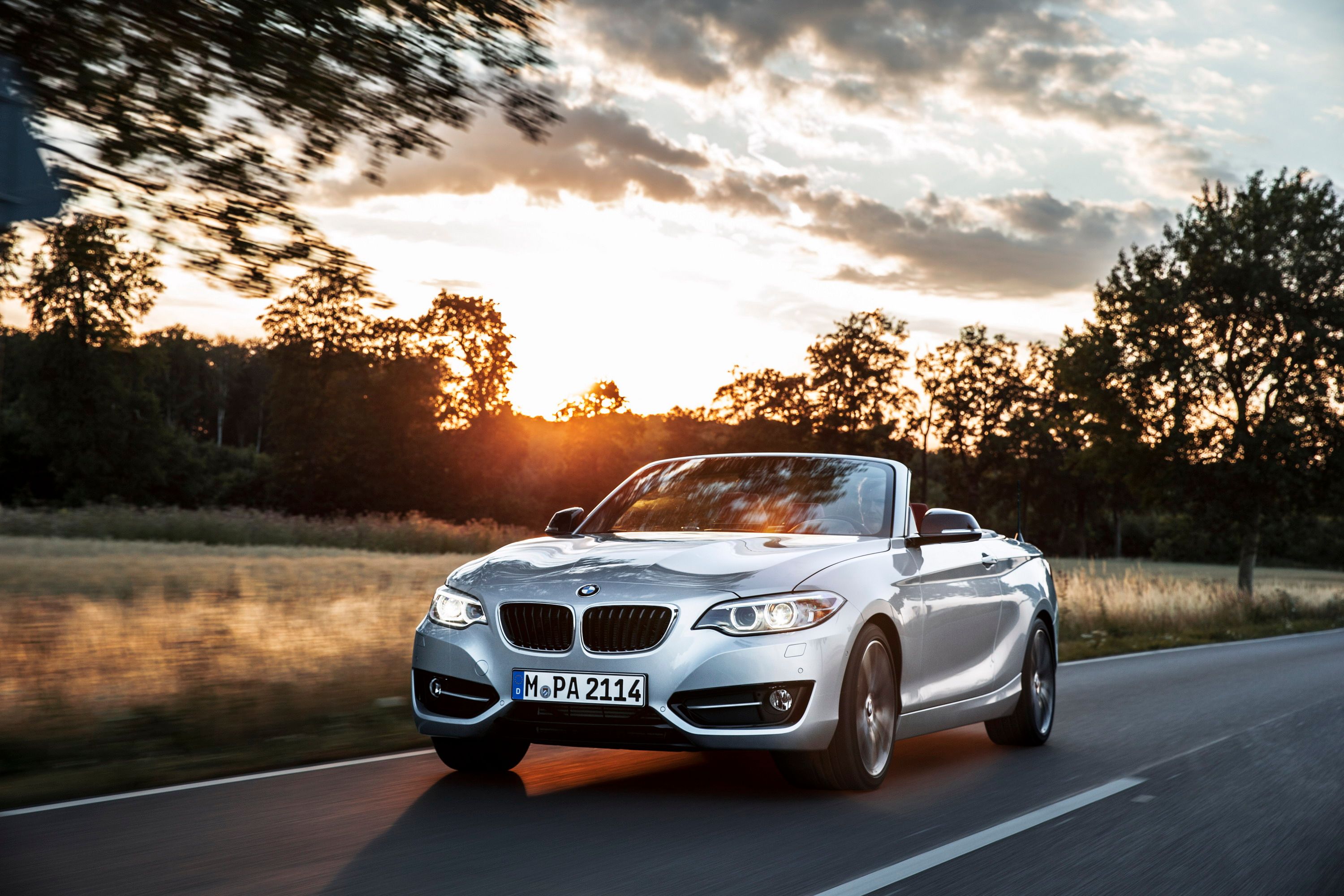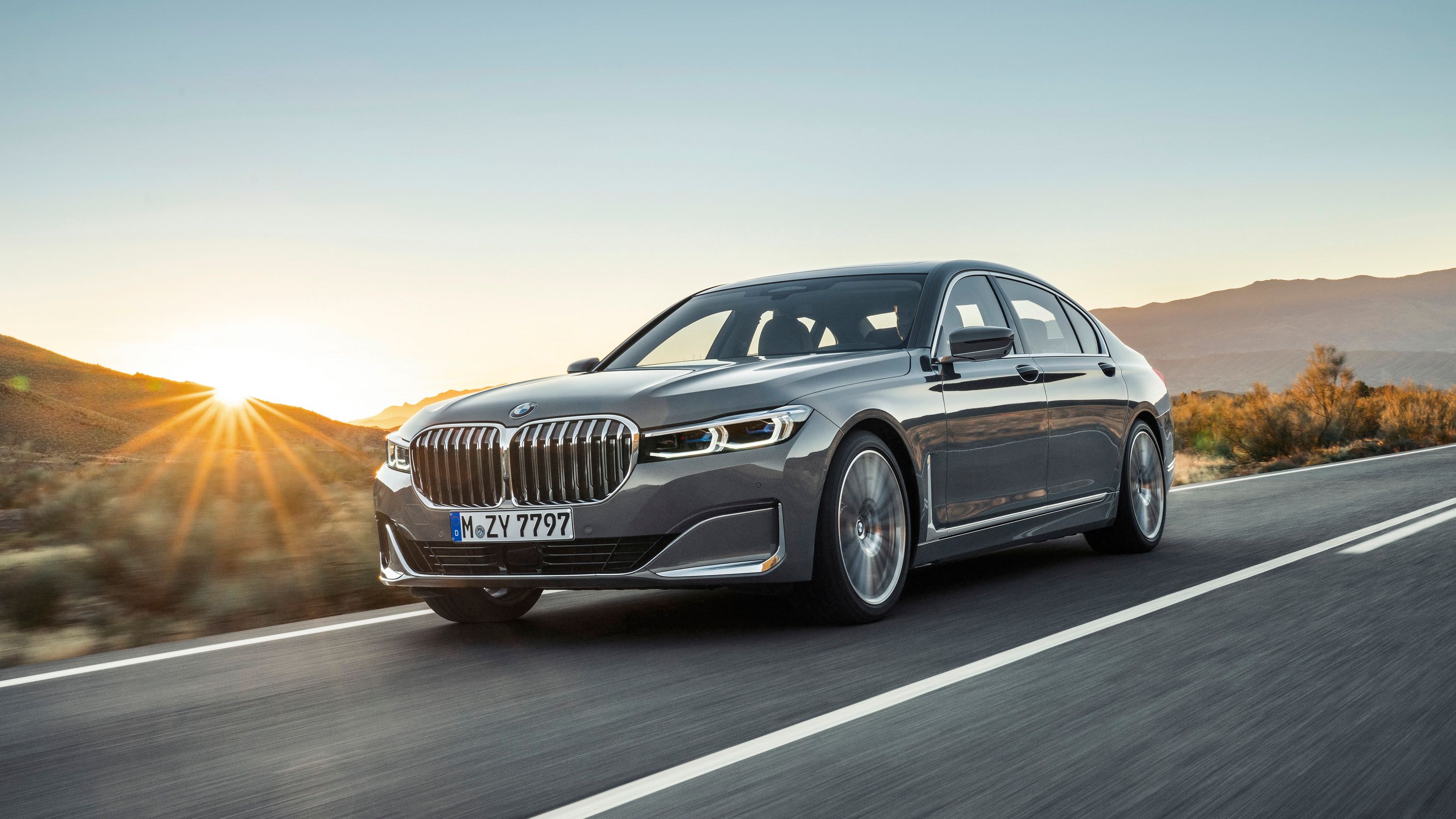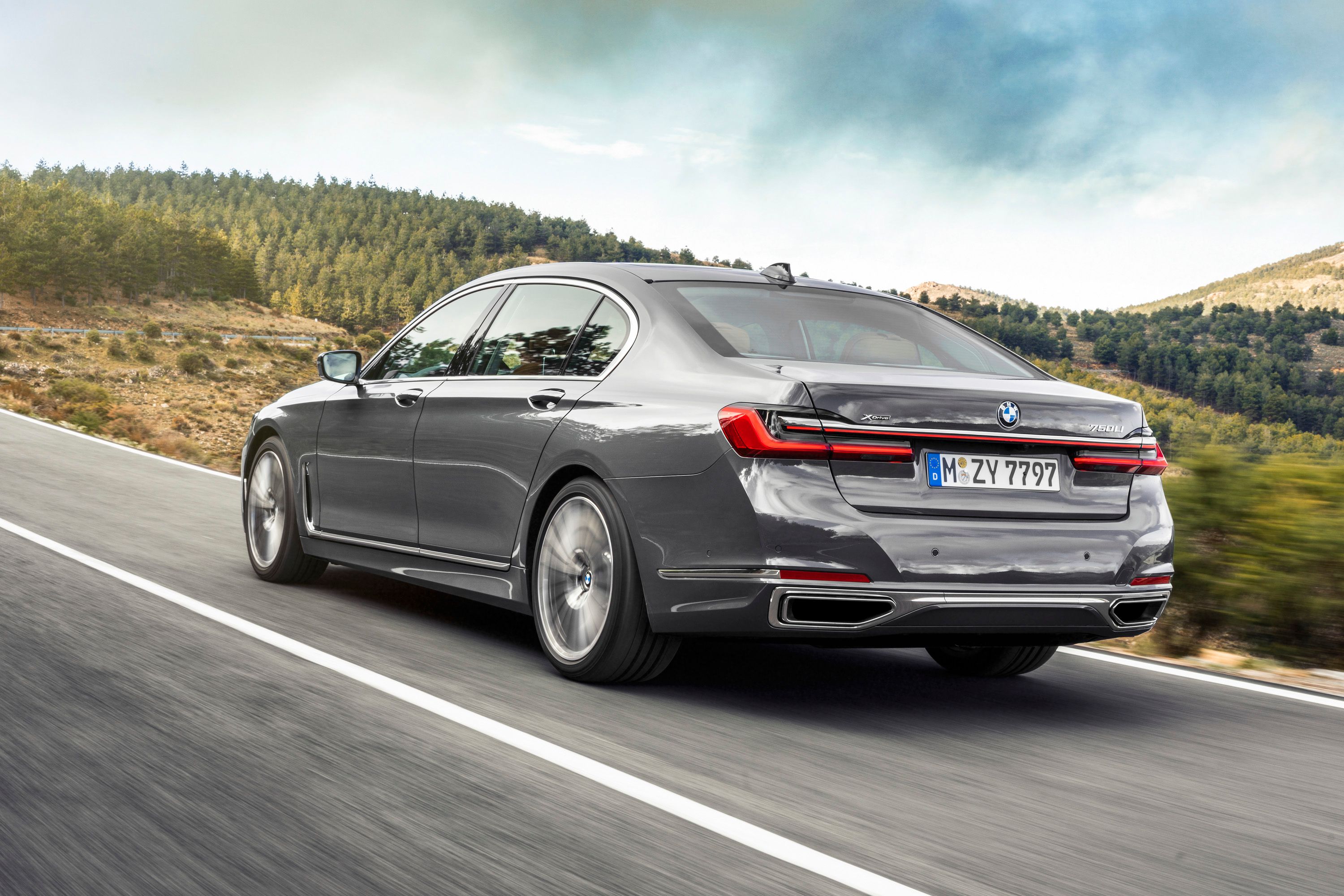There’s a glamorous side to the auto world that we often celebrate in world debuts, product launches, and concept car reveals. But as exciting as that side of the business is, the actual business of making money is about as ruthless and cutthroat as it gets. We don’t often see this aspect of the industry, but when it rears its ugly head, it can turn the fortunes of an automaker upside down without warning. Like most automakers, BMW’s bottom line is its number one priority. When that bottom line trends north, everyone goes home with a smile on their face. But what if that bottom line suddenly reverses course? Panic ensues and plans and projects, no matter how new, are scuttled and thrown directly into the trash bin. To be clear, BMW is still profitable; it’s just not as profitable as it would like to be, especially with heavy investments in hybridization and electrification draining most of its profits away. To keep its numbers from spiraling out of control, BMW is reportedly considering axing several models from its lineup, including a pair of models that have just been unveiled in the last couple of years. The cost-cutting measures come at a time when Bimmer is redirecting its attention and resources towards projects that will help it remain relevant in the next decade. It’s just that, by doing that, we’re likely going to have to say goodbye to some of the automaker’s current models, none more surprising, at least in my mind, than the new BMW Z4 and coupé and convertible versions of the BMW 8 Series.
BMW 2 Series Convertible Canceled
On the surface, the BMW 2 Series Convertible has all the makings of a great ride. It’s fun to drive and it punches well above its weight when it comes to its amenities. So why is the 2 Series Convertible in the crosshairs of getting canceled? Sales, dear Watson. Sales. Some of it isn’t the 2er’s fault. BMW has so many investments in the pipeline that all the money it’s bleeding to fund those investments is eating into its profits. Canceling a few models helps mitigate that, even if it means getting rid of what is essentially a solid premium compact convertible. And if there’s anything the 2 Series Convertible can teach us, even great rides aren’t immune to the trash bin if they’re not turning in solid sales numbers.
That’s the biggest issue with the 2 Series Convertible.
Since the 2 Series isn’t a profitable vehicle for BMW to begin with, keeping the coupé and ditching the convertible makes a lot of sense if BMW wants to tighten its budget to fund more important investments. There will always be casualties when an automaker as big as BMW streamlines its budgets to the extent that it will for future projects and investments. The 2 Series Convertible is an easy scapegoat because, at the end of the day, it’s not really that important of a model to BMW.
Read our full review on the 2018 BMW 2 Series Convertible
Standard-wheelbase BMW 7 Series Canceled
BMW has the same struggles as Mercedes-Benz and Audi these days. All three automakers struggle to make money on cars that sell under $40,000. It’s one of the reasons why the 2 Series Convertible is headed to death row, and while it’s still important to have a presence in these segments, models like the 1 Series, 2 Series, and even lower-spec trims of the 3 Series barely contribute anything to the automaker’s profit margins.
This is cannibalism at its finest. People see the same model presented in two different ways. Instead of “saving” a few thousands of dollars on the standard 7 Series, prospective buyers — most of whom are rich and can afford what most of us can’t — instead pay the extra to get the extra. That has left the standard-wheelbase 7 Series in a precarious position. Some people still buy it, but the volume isn’t enough to justify its existence, especially when there’s a bigger and better version that can be purchased for a small premium over the standard model’s sticker price.
I’m positive that BMW had the best of intentions when it released the current-generation, standard-wheelbase 7 Series (G11) in 2015. It’s done its part to help BMW grab a decent chunk of the super-luxury sedan market, but times and, more importantly, priorities have changed. The standard-wheelbase 7 Series has become expendable enough that the long-wheelbase version can step up and occupy both sub-segments without missing a beat. It’s been a good run for the 7 Series G11, but its time has come. Not a lot of people will probably miss it, least of all BMW, which can use the money it would have otherwise used in building the sedan for its future investments in hybridization, electrification, and autonomous driving technology, among others.
BMW 740i specifications
|
Engine |
3.0-liter BMW TwinPower Turbo inline 6-cylinder |
|---|---|
|
Displacement |
2,998 cc |
|
Horsepower |
335 @ 5500-6500 |
|
Torque (lb-ft @ rpm) |
330 @ 1500-5200 |
|
Compression ratio (:1) |
11 |
|
0 to 60 mph |
5.3 seconds |
|
Top Speed |
130 mph |
Read our full review on the 2020 BMW 7 Series
BMW 3 Series GT Canceled
This doesn’t come as a surprise anymore because no less than BMW CEO Harold Kruger announced a few months ago that “there would be no successor” to the current 3 Series Gran Turismo. You can point to lagging sales of the model as one of the key reasons behind its demise, but the 3 Series GT’s most critical flaw ironically came at the hands of BMW. As BMW executive pointe pointed out back in May, the 3 Series GT’s niche was “under pressure from SUVs” and that buyers “want to sit a little more upright” than what the 3 Series GT provided. The latter is particularly damning because it’s a clear miscalculation on the part of BMW’s designers.
Of all the models on this list, the BMW 3 Series GT is the least surprising to inevitably walk the plank. We all knew that it was on borrowed time. We know that it’s dead-car-walking. But the next two cars on this list? Whew! Those threw us for a loop!
BMW 3 Series GT specifications
|
Config/No of cyls/valves |
In-line/4/4 |
In-line/4/4 |
In-line/6/4 |
|---|---|---|---|
|
Effective capacity cc |
1,998 |
1,998 |
2,998 |
|
Max output |
184 HP @ 5,000 RPM |
252 HP @ 5,200 RPM |
326 HP @ 5,500 RPM |
|
Max Torque |
214 LB-FT @ 1,350–4,250 RPM |
258 LB-FT @ 1,450–4,800 RPM |
332 LB-FT @ 1,380–5,000 RPM |
|
0–100 km/h (62 mph) |
8.0 seconds |
6.1 seconds |
5.1 seconds |
|
Top Speed km/h |
230 km/h |
250 km/h |
250 km/h |
Read our full review on the 2018 BMW 3 Series GT
BMW Z4 Canceled
Wait a second. The BMW Z4, the same car that BMW literally spent more than five years developing with Toyota and the same car that made its debut barely a year ago, is now in the chopping block? The Z4 has only been on sale for four months and just crossed the 1,000 sold units threshold less than two months ago, and it’s already getting its eulogy ready?
It’s absurd to imagine such a scenario if you look at it from the lens of these questions. But like everything else, context needs to be placed where it’s due, and it’s definitely due in this scenario. The BMW Z4 is not getting axed anytime soon. That much is clear. BMW spent too much time, money, and resources to develop the car only to ditch it before it can even celebrate its first anniversary in the market. The Z4 will have a full production cycle that could presumably last well into the next decade.
That’s not the issue here, though.
BMW Z4 specifications
|
Engine type |
B46 |
B58 |
|---|---|---|
|
Cylinders |
4 |
6 |
|
Valves per cylinder |
4 |
4 |
|
Stroke mm |
94.6 |
94.6 |
|
Bore mm |
82.0 |
82.0 |
|
Displacement cm³ |
1,998 |
2,998 |
|
Compression rate :1 |
10.2 |
11.0 |
|
Engine power |
255 HP @ 5,000 - 6,500 RPM |
382 Hp @ 5,000 – 6,500 RPM |
|
Engine torque |
295 LB-FT @ 1,500-4,400 RPM |
369 LB-FT @ 1,600 – 4,500 RPM |
|
0 to 60 mph |
5.2 seconds |
3.9 seconds |
|
Top speed |
155 mph |
155 mph |
Read our full review on the 2019 BMW Z4
BMW 8 Series Canceled
The BMW Z4 Roadster wasn’t the only surprising model to be included in this rumored list. Turns out, the BMW 8 Series is also in there for possibly the same reasons as the Z4 Roadster. This one also sounds strange on paper, in part because BMW spent a great deal of time in giving the 8 Series a clear place in its lineup as its unquestioned flagship model. Now it seems that company execs are prepared to cut the legs off of the 8 Series by ditching the coupé and convertible models, leaving only the 8 Series Gran Coupe model to carry the mantle for the nameplate.
That’s refreshing to hear.
I understand that all these cancellations are largely due to company revenue not being where it is, or at least where BMW’s bigwigs expected it to be. In a perfect world, BMW would keep all these models going because they’re helping make the automaker more profitable. But we don’t live in a perfect world. We live in a world where BMW’s share prices in Europe have fallen from €122 ($137) in 2015 to €65 ($73) this year. We live in a world where earnings of the company’s car division dropped 22 percent from its numbers the year before. We also live in a world where BMW, like every other automaker, has to account for an unsettled global economy that’s being weighed down by a looming trade war between the US and China. And through all that, the German automaker still has to push forward with its major investments for the future, even if it comes at the cost of putting pressure on the company’s overall budget. The best way to ease some of these stress points is to save money where it can, and one way to do that is dropping models that contribute little to nothing to the company’s bottom line.
BMW 8 Series specifications
|
Engine type |
N63B44T3 |
|---|---|
|
Cylinders |
8 |
|
Valves per cylinder |
4 |
|
Stroke |
88.3 mm |
|
Bore |
89.0 mm |
|
Displacement |
4,395 cm³ |
|
Compression rate :1 |
10.5 |
|
Engine power |
523 HP @ 5,500 - 6,000 RPM |
|
Engine torque |
553 LB-FT @ 1,800-4,600 RPM |
|
Transmission type |
8HP76 Sport |
|
Transmission type |
automatic |
|
0-60 mph |
3.6 seconds |
|
Top speed |
155 mph |
Read our full review on the BMW 8 Series



